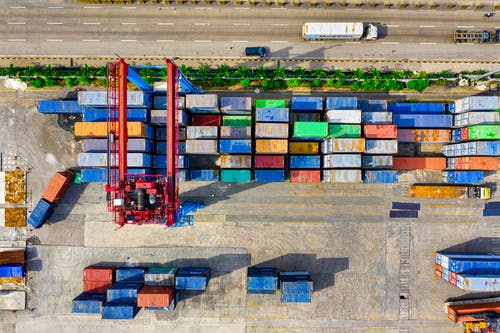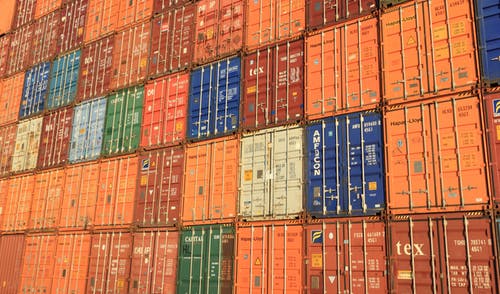The number of vaccine shipments being transported by air is gradually taking off as more products are launched and more countries launch inoculation programmes. Below you will find all the latest updates on air cargo vaccine transportation operations from forwarders, airlines, airports and handlers.
MARCH 18: Airline alliance SkyTeam Cargo has launched a dedicated program for shipping Covid-19 vaccines. The V Excellence solution brings together the existing Customized Vaccines product, which offers special handling and priority, and the group’s Specialized Pharma product. “V Excellence is backed by a vast network reach combined with years of experience in special handling to guarantee the safe, reliable transportation of millions of doses of COVID-19 vaccines between continents,” said SkyTeam Cargo chairman and chief executive of Saudia Cargo, Omar Hariri.
MARCH 18: Air France KLM Martinair Cargo has set up a customer Covid Service Centre to manage all of its coronavirus vaccine shipments. Senior vice president of sales and distribution GertJan Roelands, said: “Understandably, at this exceptional time, a great deal of attention is devoted to combating the coronavirus crisis and everything that comes with it, such as the transportation of vaccines. I am grateful that we can make an essential contribution to this. Our extensive experience and know-how, our dedicated and well-trained teams, combined with our wide product range and global network, are the most important pillars to provide our customers with the best possible service.”
MARCH 15: Cathay Pacific Cargo will temporarily add passenger freighter flights between Brussels and Hong Kong to meet demand for vaccine transport. The extra cargo flights are planned until June and the schedule will be adapted to market demand and the latest developments. Earlier this month, Cathay Pacific Cargo shipped the first batch of 1m Fosun Pharma / BioNTech vaccines from Frankfurt to Hong Kong.
MARCH 15: Delta has moved Covid-19 vaccines from the US to Europe. Routes include: Madrid to New York-JFK and Detroit to Brussels. The carrier’s pharma capabilities include temperature-controlled warehouses, and its monitoriing service provided by its Vaccine Watch Tower. Rob Walpole, vice president of Delta Cargo, commented: “We have been shipping vaccines daily throughout the US with 100% reliability, and as the global effort accelerates, we have been able to leverage our international network and pharma expertise to extend our vaccine distribution into numerous international markets. Our unique Vaccine Watch Tower has been critical in providing our customers peace of mind throughout the shipping process, in what is often a complex logistics chain.”
MARCH 15: Turkish Cargo recently collaborated with Kuehne+Nagel to transport 1.7m doses of vaccines, on behalf of UNICEF for its Covax project, from India to Kinshasa, the capital of the Democratic Republic of Congo. The carrier has already transported vaccines for the Covax initiative from Barcelona to Tunisia, and from Amsterdam to Kiev, Tbilisi and Amman.
MARCH 11: Ethiopian Airlines has operated Covid-19 vaccine delivery flights from Mumbai to Addis Ababa and from Beijing to Brazzaville. Ethiopian transported the first batch of coronavirus vaccines from Mumbai to Addis Ababa on March 6 2021. The airline continued to play its prominent role in the vaccine distribution and transported the vaccines from Beijing to Brazzaville via Addis Ababa on March 10 2021.
MARCH 11: Etihad Cargo and EFL (Expolanka Freight) have carried a vital consignment of vaccines from India to Egypt. The two entities collaborated to carry a consignment of 12,475,000 Tetanus and Diphtheria vaccine doses produced in India, the largest vaccine manufacturing origin according to WHO. EFL handed over the shipment to Etihad Cargo’s care in Mumbai, with the UAE’s national carrier transiting the consignment through its hub at Abu Dhabi International Airport en route to Cairo.
MARCH 10: Passive temperature-controlled packaging manufacturer Softbox is supporting Pfizer with its rollout of Covid-19 vaccines. The companies worked together to develop a temperature-controlled, reusable parcel shipper developed specifically for ultra-low temperature shipments, such as the Pfizer vaccine, which needs to be stored at around -70 degrees Celcius in order for it to be effective.
MARCH 10: Qatar Cargo recently surpassed a milestone with 10m Covid-19 vaccines transported, including vaccines for UNICEF as part of the five-year MoU to support UNICEF’s Humanitarian Airfreight Initiative. Since December 2020, Qatar Airways Cargo has transported Covid-19 vaccines to twenty countries all over the world including Algeria, Cambodia, Denmark, Pakistan Rwanda, South Africa, the Netherlands, to name a few.
MARCH 8: Amerijet has delivered Covid-19 vaccines to the Caribbean and Central America on behalf of Odyssey Logistics Pvt. Ltd. These shipments were a part of India’s Government gifted Covishield AstraZeneca vaccines manufactured by the Serum Institute of India. The vaccines bound for Jamaica, Guyana, and Nicaragua, were transferred via Amerijet’s 33,500 sq m hub at the Miami International Airport, which includes a 3,700 sq m temperature-controlled handling centre. “Delivering 350,000 doses of life-saving vaccines to destinations in our service region is something our entire company is proud of, and all of us at Amerijet are honored to be part of the global initiative to get the virus under control,” said chief executive Tim Strauss.
MARCH 3: Caribbean Airlines has transported Covid-19 vaccines from Toronto to Guyana. Marklan Moseley, general manager cargo and new business said: “Caribbean Airlines is happy to have transported this important shipment. We have always carried temperature sensitive cargo and since the approval of vaccines for distribution, we ensured all measures were in place to transport same. Caribbean Airlines Cargo will continue to do its part in the movement of relief supplies throughout the region.” This latest shipment of vaccines will enable Guyana to advance the rollout of its vaccination programme.
MARCH 1: FedEx has today begun shipping the newly approved COVID-19 vaccine on behalf of McKesson Corp. to dosing centers throughout the US. The company has shipped millions of COVID-19 vaccines since US distribution began in mid-December 2020 and is prepared to scale up to accommodate anticipated growth in vaccine volume throughout the spring and summer. Nearly three months after Covid-19 vaccine distribution began, FedEx has shipped COVID-19 vaccines and supply kits to administration sites across all 50 states, Puerto Rico, the US Virgin Islands, and Washington, D.C. Covid-19 vaccine volume is split evenly with FedEx moving approximately half the doses allocated by the federal government.
FEBRUARY 27: Cathay Pacific Cargo carried 1m vaccine doses manufactured by Fosun Pharma/BioNTech from Frankfurt to Hong Kong. The batch was the first from Fosun Pharma/BioNTech to be delivered to Hong Kong, where Cathay is based. The carrier has already also transported a Fosun Pharma/BioNTech shipment to Penang on one of its freighters. Cathay also recently transported 1m doses of the Sinovac to Hong Kong. The doses were loaded in six temperature-controlled Envirotainer RAP e2 containers to keep them at 2°C to 8°C, in the bellyhold of an Airbus A330 passenger aircraft. The carrier also transported 200,000 of Sinovac doses to Mexico. They were stored in a single Envirotainer RAP e2 container and carried on a Boeing 747-8 freighter. Additionally, Cathay has transported a CanSinoBIO vaccine shipment via Beijing and Hong Kong to Mexico.
FEBRUARY 27: MASkargo successfully flew in the first batch of Sinovac Covid-19 vaccines from China to Malaysia. Flight MH319, utilising Malaysia Airlines’ Airbus 330-300 aircraft, departed from Beijing Capital International Airport at 02:30hrs and safely landed at KL International Airport at 09:00hrs. The Sinovac Covid-19 vaccines were flown in utilising the MH Centigrade product designed explicitly for time and temperature-sensitive shipments. MH Centigrade caters to deep-frozen (-20˚C and below), refrigerated (2˚C to 8˚C) or chilled (15˚C to 25˚C) shipments using its active containers ACT (Envirotainer) and passive containers PCT (Normal ULD with dry ice and thermal blankets).
FEBRUARY 26: Incheon International Airport sees a constant flow of passengers and cargo and on February 26 a fleet of UPS trucks lined up at South Korea’s main gateway ready to receive its first shipment of Covid-19 vaccines. The vaccines were packed and stored in Belgium for their journey to Incheon; and then driven to designated storage facilities throughout South Korea – maintaining strict temperature and quality controls – to be administered to front-line healthcare workers and others deemed most at risk.
FEBRUARY 26: Kuehne+Nagel successfully helped Sinovac Biotech Ltdfulfill its first Covid-19 vaccine shipment from Beijing, China to the Dominican Republic. The pilot shipment containing 768,000 vials of Covid-19 vaccine was stored in active temperature-controlled containers and arrived safely in Santo Domingo, the capital of the Dominican Republic, on February 23, benefitting its citizens just before its Independence Day. The shipment was closely monitored and compliant with the most stringent standards to guarantee product integrity. Prior to this shipment, Kuehne+Nagel successfully fulfilled multiple crucial assignments for Sinovac, including an air charter from Beijing to Turkey for a door-to-door delivery of nearly a quarter-million flu vaccines.
FEBRUARY 25: Silk Way West Airlines has operated more than 100 charter flights to deliver a range of medical supplies during the pandemic, and has now signed a number of ambitious contracts in preparation for the delivery of temperature-sensitive cargo. Supplies are safely delivered to specially equipped warehouses, and are handled by personnel specifically trained for the sensitive cargo. In preparation, the airline optimised operational processes, introduced new technologies and modernised the 1,500 sq m cargo terminal at Heydar Aliyev International Airport, with the refrigeration and freezer warehouse area was inspected and upgraded.
Photo credit : https://www.pexels.com/





